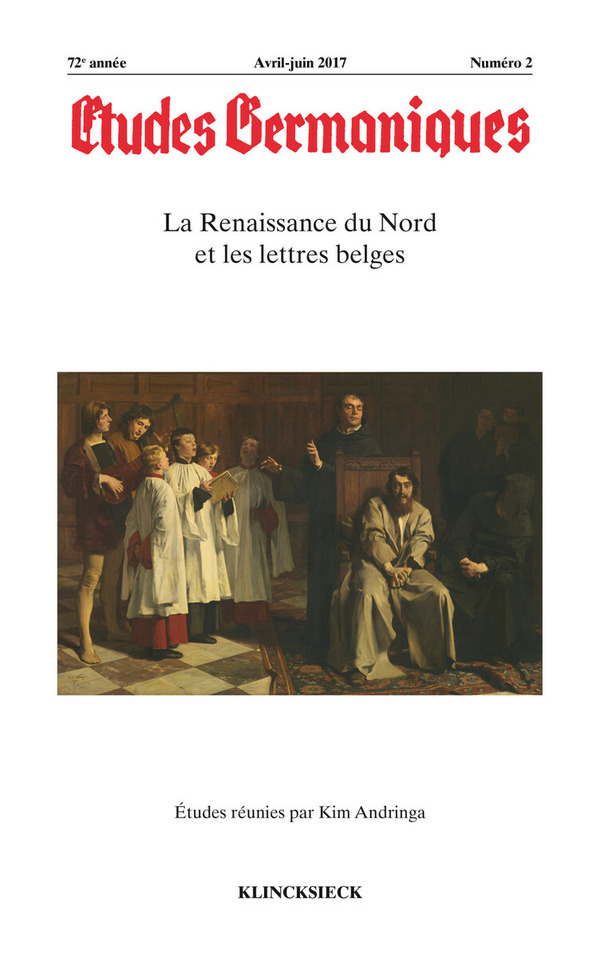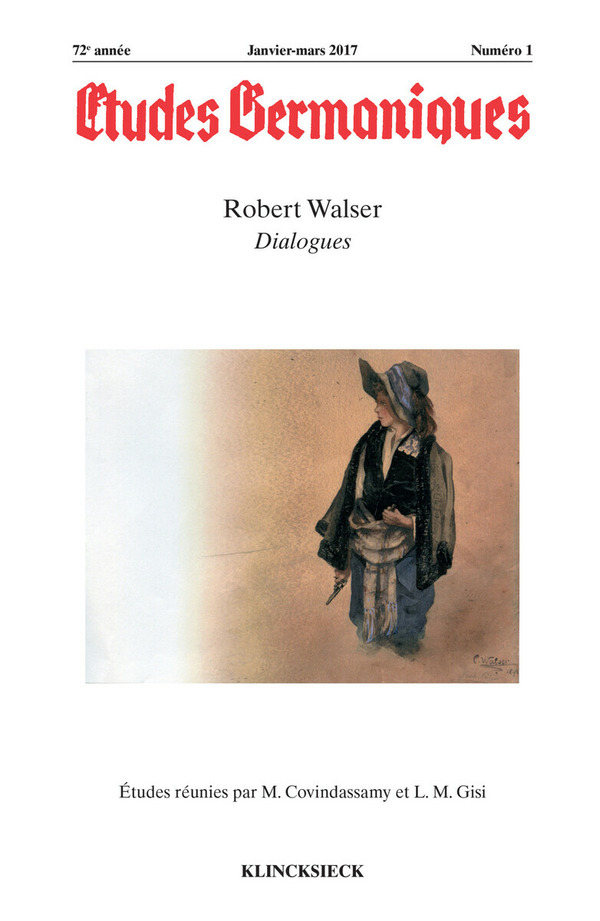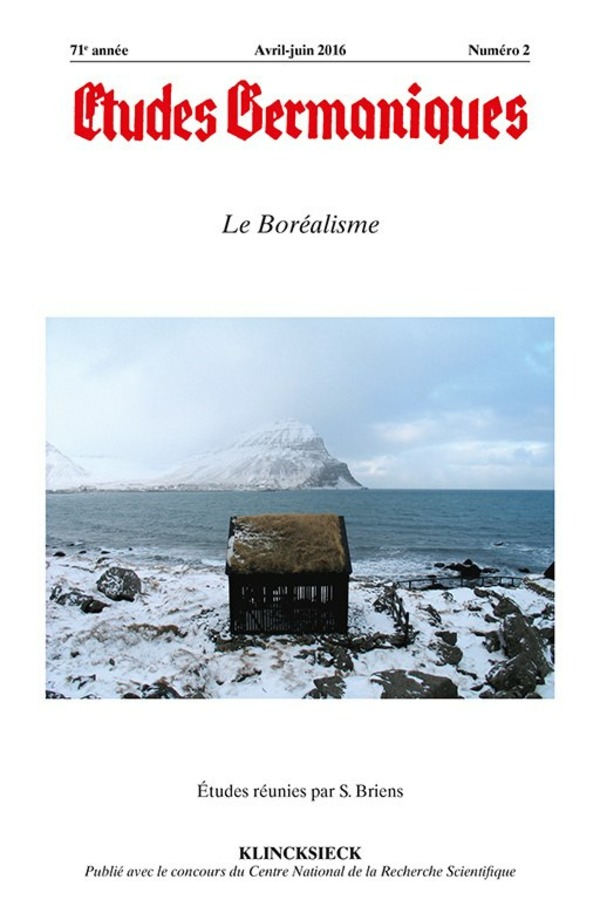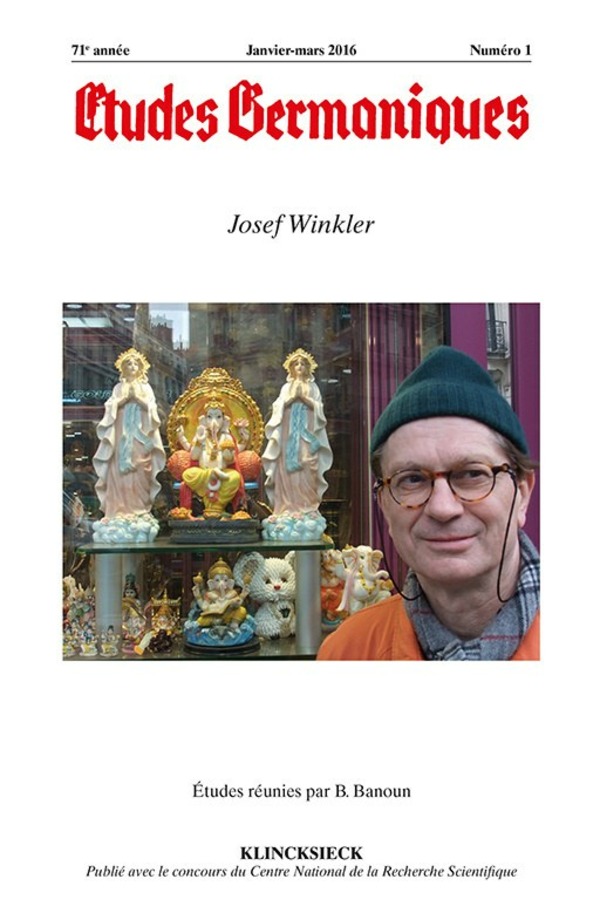Études germaniques
La revue Études germaniques a pour but d’informer avec un grand souci d’impartialité et d’objectivité scientifique tous ceux qui s’intéressent à la vie du monde germanique (Allemagne, Suisse, pays scandinaves et néerlandais, études yiddish et judéo-allemandes), aussi bien sur des questions qui touchent à la linguistique, à la littérature, à l’histoire, à la philosophie, à l’art, à la religion — en un mot à la civilisation — qu’à celles qui relèvent de l’actualité et qui sont étudiées dans un esprit de savants et non de partisans.
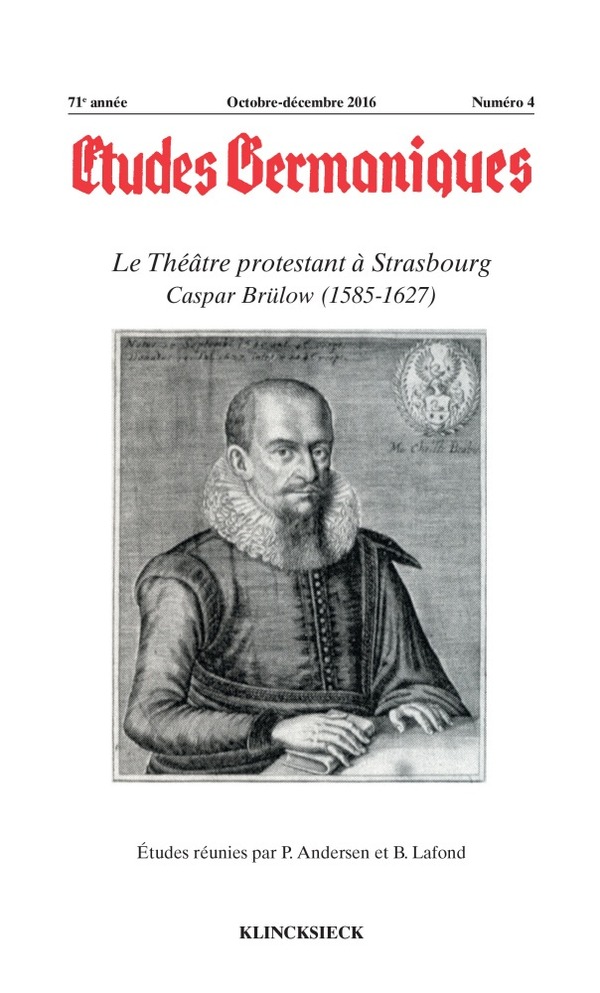
Études germaniques - N°4/2016
Le Théâtre protestant à Strasbourg Caspar Brülow (1585-1627)
Jean-Marie VALENTIN : Charlemagne ou Moïse ? Confession et politique au théâtre ou le conflit entre Molsheim (1618) et Strasbourg (1621)Édith WEBER : Christoph-Thomas Walliser (1568-1648). Musicien et pédagogue pluridisciplinaire avant la lettrePeter ANDERSEN : Caspar Brülows Autographe (1612-1627) . 511 Winfried WOESLER : Brülows, Andromede"(1612) und Campeggis „Andromeda"...
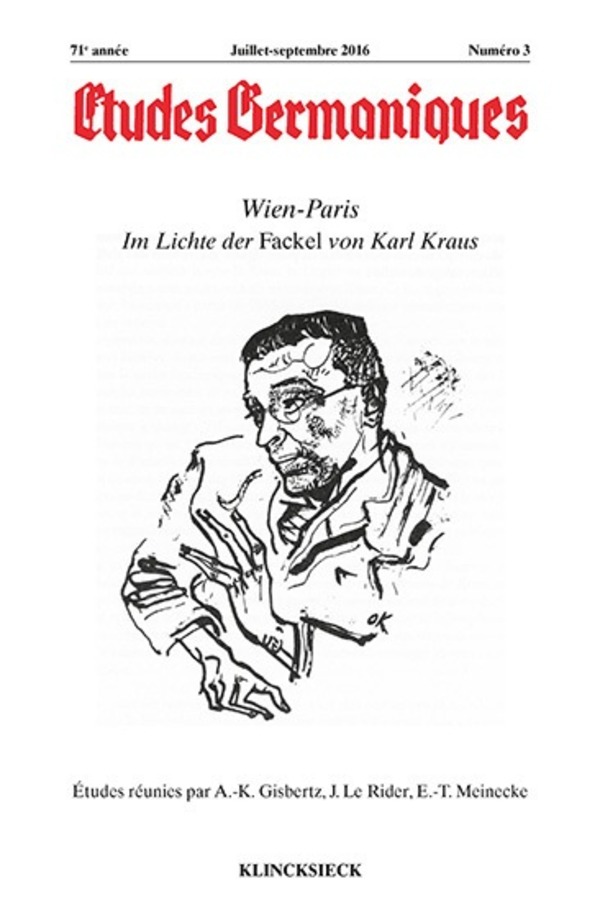
Études germaniques - N°3/2016
Wien-Paris Im Lichte der Fackel von Karl Kraus
Anna-Katharina GISBERTZ, Eva-Tabea MEINEKE, Jacques LE RIDER : Karl Kraus' Paris und die AntimoderneJacques LE RIDER : Karl Kraus und die Dreyfus-AffäreWalburga HÜLK : Phrase und Gemeinplatz – Kraus, Flaubert und der BoulevardGesa ZUR NIEDEN : „in Paris même malaise"? Karl Kraus' Paris-Bilder im Zusammenhang mit seiner Offenbach-Renaissance und den...
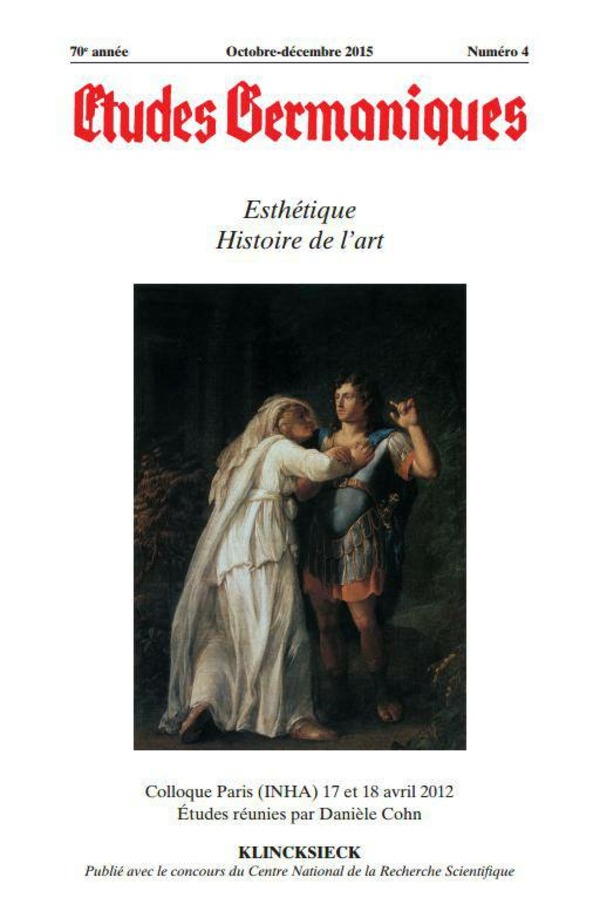
Études germaniques - N°4/2015
Esthétique. Histoire de l'art
Danièle COHN : Le cas Goethe Carole MAIGNÉ : Robert Zimmermann et la classicité. Science de la forme et histoire de l'esthétique à Vienne dans la seconde moitié du XIXe siècle Muriel VAN VLIET : Morphologie, transformation et traductibilité. Le concept de mise en série chez Cassirer, Wind et LéviStrauss...
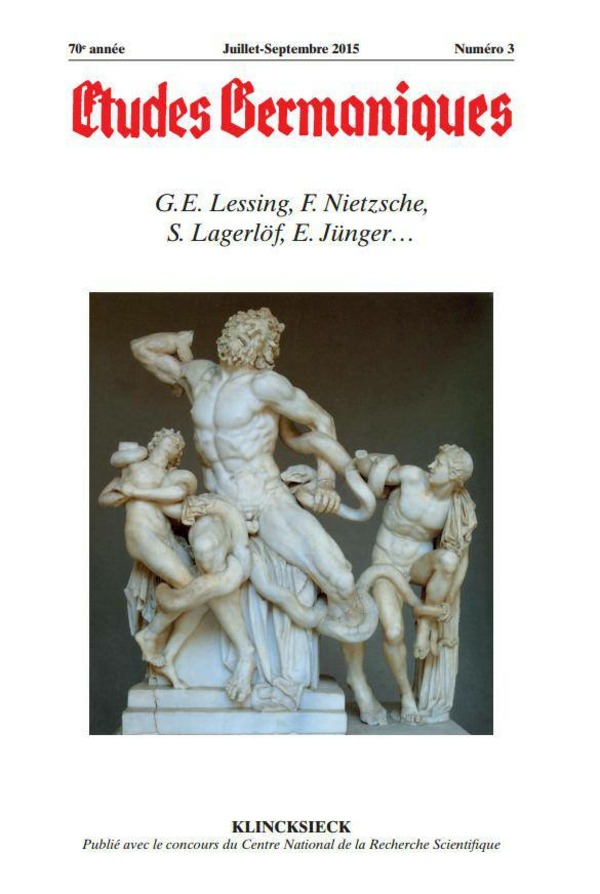
Études germaniques - N°3/2015
G.E. Lessing, F. Nietzsche, S. Lagerlöf, E. Jünger…
Carolin BOHNLektüren des fruchtbaren Augenblicks Zu Lessings Darstellungstheorie This article analyzes the concept of the "fruitful moment" and provides new insights into Lessing's theory on the conditions of illusion, and awareness. Previous readings have defined the fruitful moment as a temporal element in painting that depends on an already existing...
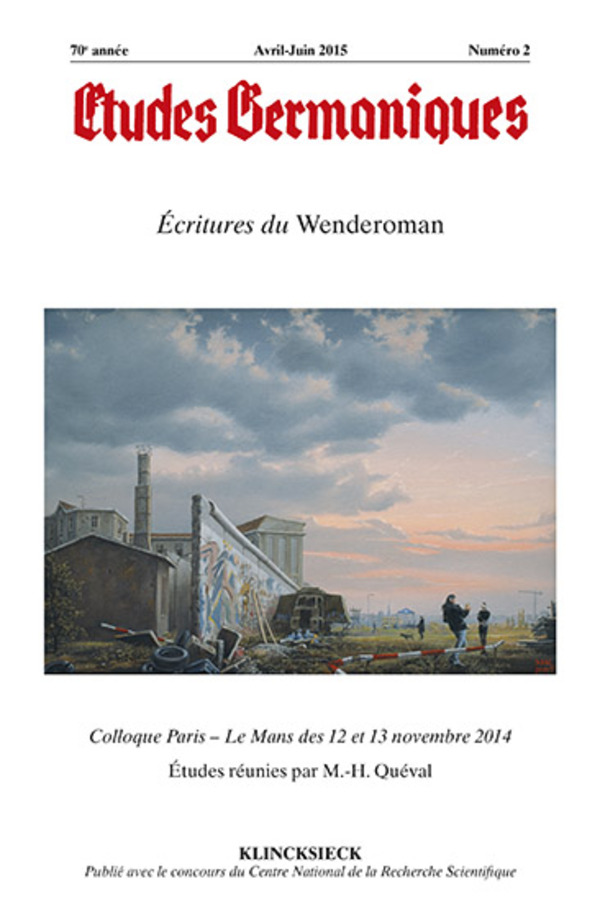
Études germaniques - N°2/2015
Écritures du Wenderoman
Marie-Hélène QUÉVALLe Wenderoman et l'impasse postmoderne The Wenderoman is a genre specifcally rooted in the period preceding, including and immediately following the fall of the Berlin Wall in the late 1980s and early 1990s. It however looks beyond this historical frame to question its own form and legitimacy. Bearing witness...
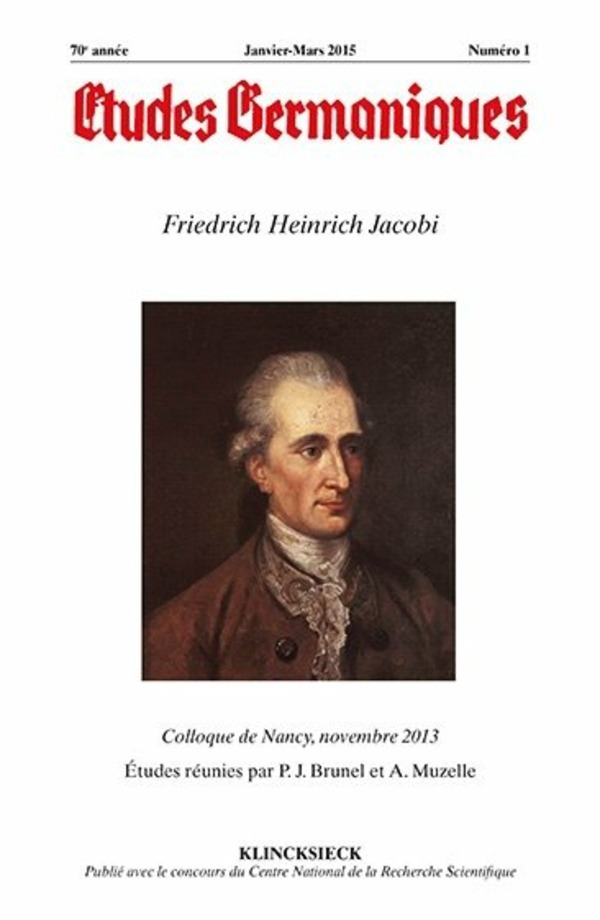
Études germaniques - N°1/2015
Friedrich Heinrich Jacobi
Pierre Jean BRUNEL : Oti et dioti. Les enjeux métaphysiques de l'éthique aristotélicienne dans Woldemar de Friedrich Heinrich Jacobi While Aristotle's authority is being challenged by modern philosophy, Jacobi quotes from his Nicomachean Ethics in Woldemar. Daniel Jenisch's edition of the Aristotle Ethics proves to be a major source for...
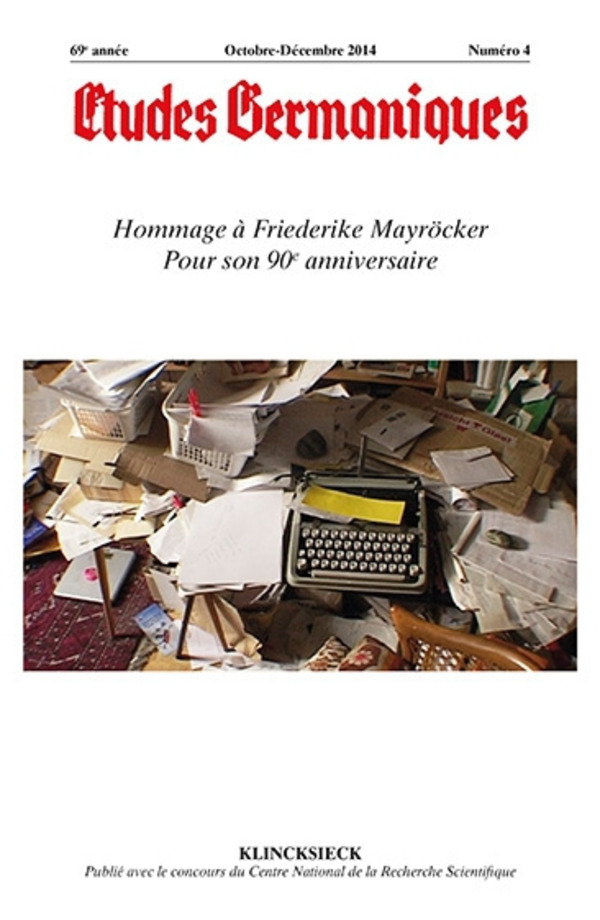
Études germaniques - N°4/2014
Hommage à Friederike Mayröcker Pour son 90e anniversaire
Inge ARTEEL Biographie einer BiographielosenBased on my experiences writing a monographical biography of Friederike Mayröcker I explore some dilemma's and paradoxes of biographical writing, both in the texts of Mayröcker herself and in the writing about her texts. In her prose texts as well as in paratexts Mayröcker cites and...
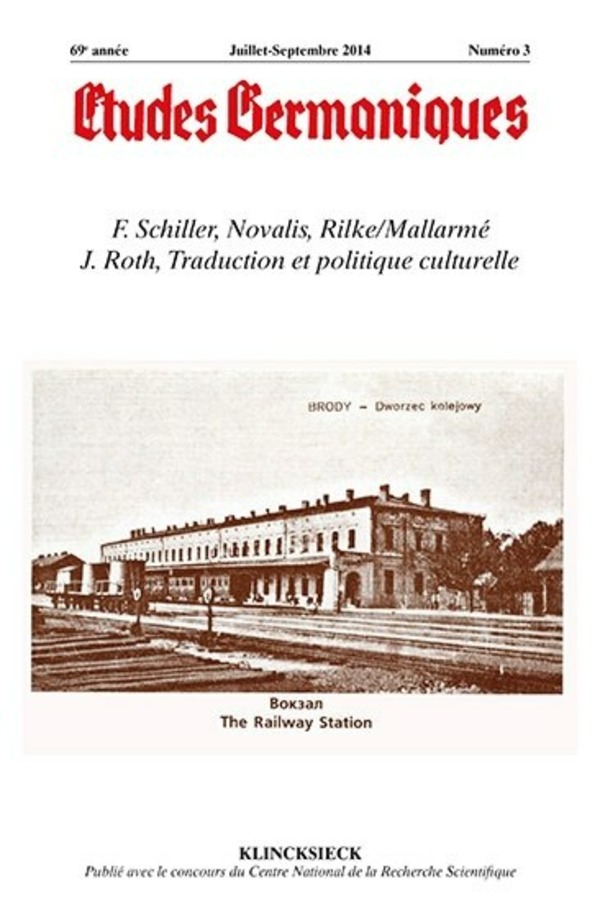
Études germaniques - N°3/2014
F. Schiller, Novalis, Rilke/Mallarmé, J. Roth, Traduction et politique culturelle
Daniel DROIXHE Le théâtre allemand dans les limbes de la reconnaissance La chronique du Journal encyclopédique, du Hanswurst à Klopstock (1756-1762) The study follows the various stages through which the Journal encyclopédique records the claims and reforms having allowed the XVIIIth century German theatre to shake off the « great...
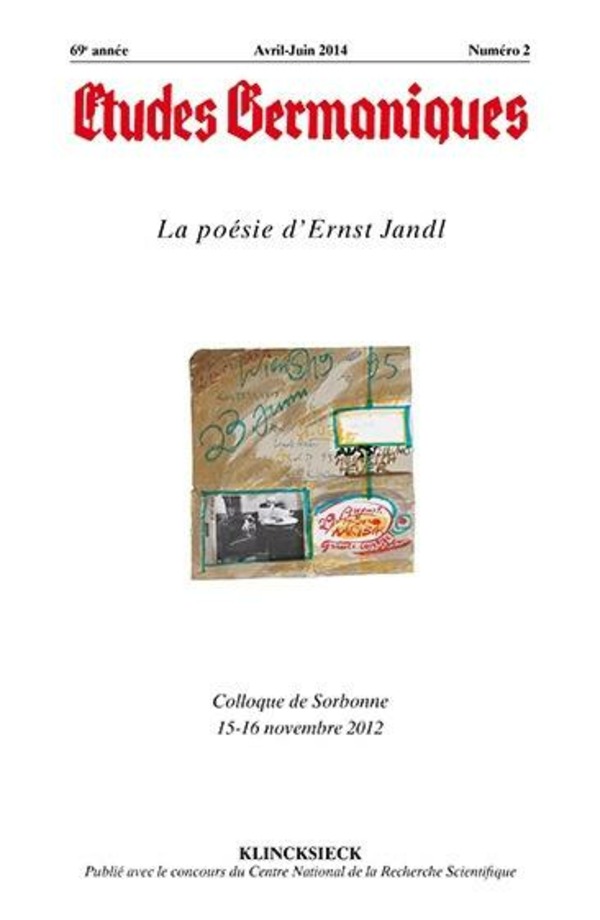
Études germaniques - N°2/2014
La poésie d'Ernst Jandl
RESUMES Laurent CASSAGNAU, Voir le corps de la langue, écouter la langue du corps. Ernst Jandl et la critique du logocentrisme.This article discusses the work of Ernst Jandl from the viewpoint of those twentieth century thinkers who challenge the idea of a transcendent logos, which pervades the Western tradition in...
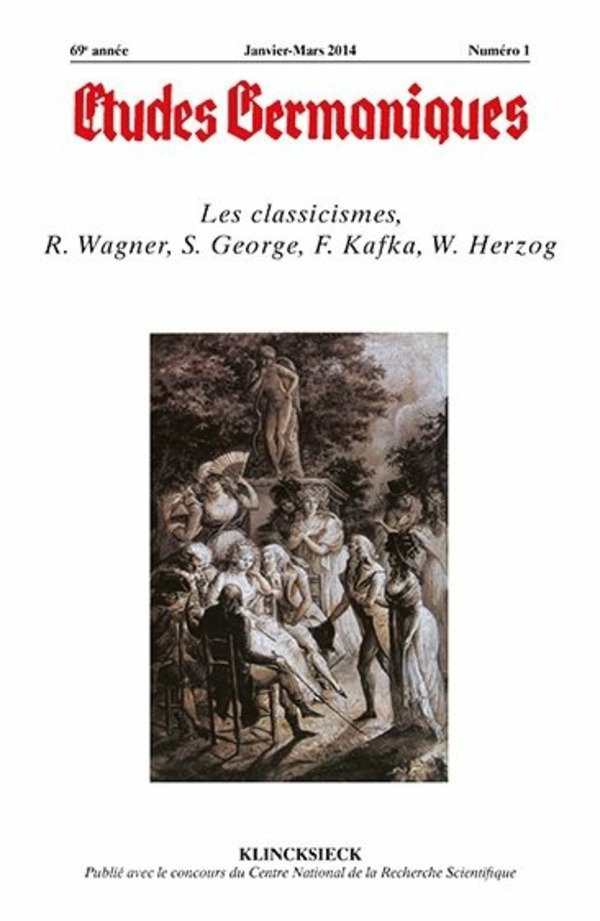
Études germaniques - N°1/2014
Les classicismes, R. Wagner, S. George, F. Kafka, W. Herzog
René Sternke : Klassikentwürfe als Visionen zur Krisenbewältigung In order to for us to understand the motivation behind classical phenomena, three concepts of classicism are analyzed. Frederick II of Prussia proposes the vision of a German classicism in response to the absence of a German language and literature adequate to...
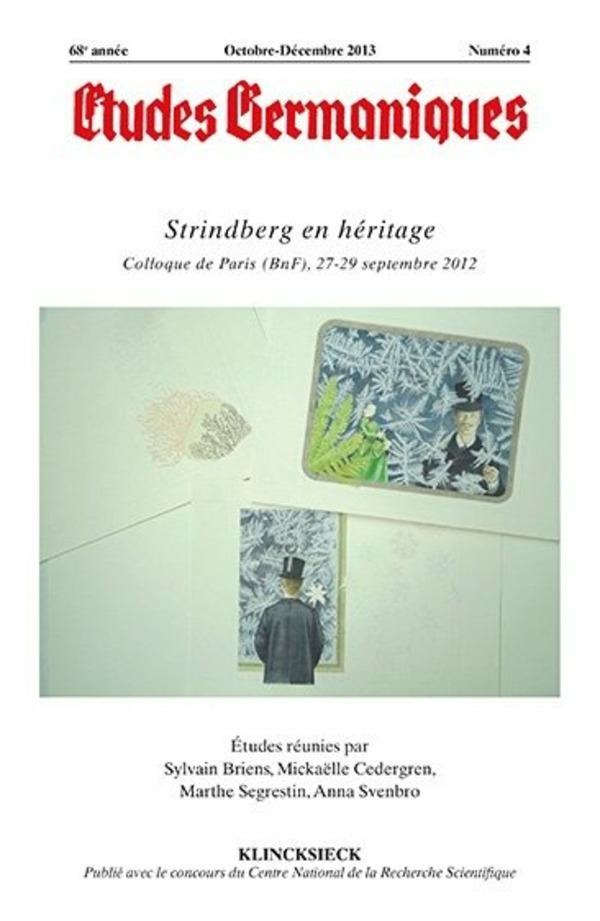
Études germaniques - N°4/2013
Strindberg en héritage (Colloque de Paris BNF, 27-29 septembre 2012)
Gunnel ENGWALLStrindberg, journaliste français During his lifetime, August Strindberg participated not only in the Swedish newspaper debate but also in the French. The first contribution was published in 1883 and the last in 1911, with a concentration to the years 1885-1887 and 1894-1898, e.g. during Strindberg's longer stays in France....

